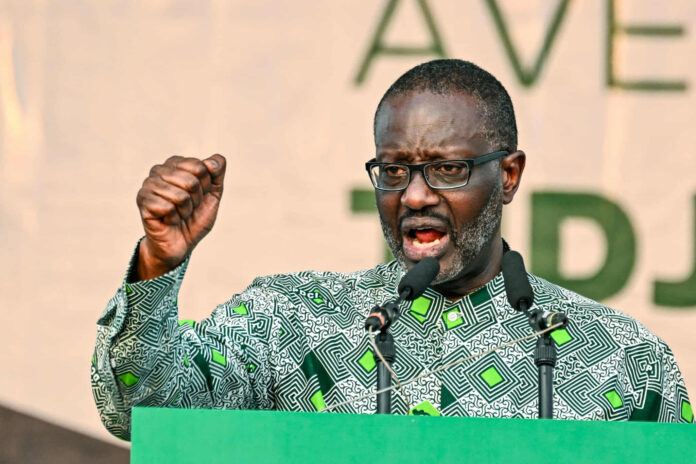Political tensions are mounting in the West African state of Côte d’Ivoire as the country approaches its pivotal presidential election scheduled for October 25, 2025.
The latest flashpoint centers on opposition leader Tidjane Thiam, whose renewed bid for candidacy has reignited controversy over electoral eligibility and democratic fairness.
Thiam, head of the Democratic Party of Côte d’Ivoire (PDCI) and former CEO of Credit Suisse, resubmitted his candidacy to the Independent Electoral Commission (CEI) on Sunday, despite a prior court ruling that barred him from the race. The ruling, issued in April, cited Thiam’s loss of Ivorian nationality following his acquisition of French citizenship in 1987. Although Thiam has since renounced his French citizenship, the court upheld its decision, effectively excluding him from the electoral roll.
Thiam’s defiant submission is widely seen as a symbolic challenge to both the judiciary and the CEI. His campaign spokesperson described the move as “a fight for the democratic rights of every Ivorian citizen,” alleging that the exclusion was politically motivated and aimed at clearing the path for incumbent President Alassane Ouattara, who is seeking a fourth term.
The development has drawn concern from civil society organizations and international observers, many of whom warn that unresolved disputes over the electoral process could deepen existing political divisions. Memories of the 2010 post-election crisis—which led to widespread violence and displacement—continue to cast a shadow over the current political landscape.
The CEI, frequently criticized by opposition parties for its perceived proximity to the ruling government, now faces a critical test of its impartiality. Analysts say the commission must navigate Thiam’s application with transparency to preserve public trust in the electoral process.
Opposition groups have called for an independent audit of the voter registry and comprehensive reforms to the CEI, citing broader concerns over electoral integrity. The exclusion of other prominent opposition figures, including former President Laurent Gbagbo, has further fueled accusations of political suppression.
With the stakes rising and no consensus yet reached among major political actors, observers warn that Côte d’Ivoire risks entering another period of instability. Calls for national dialogue are growing, as stakeholders seek a peaceful path forward in an increasingly polarized environment.
The coming weeks are expected to be decisive in determining whether the country’s institutions can uphold democratic principles and deliver a credible election amid mounting mistrust.






















